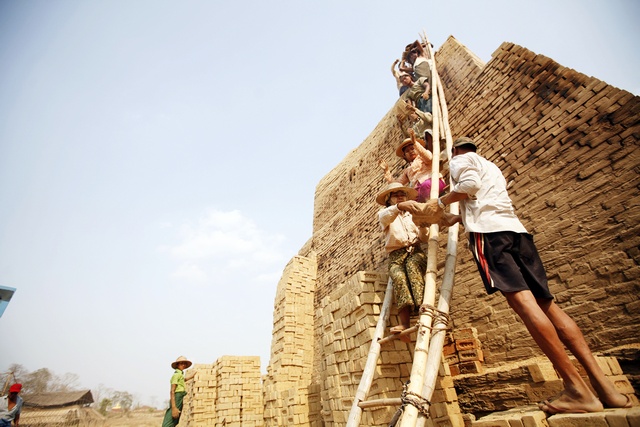Burma has been singled out as the most-improved country in the global business environment for 2014 by UK-based risk analyst Maplecroft in its annual Legal and Regulatory Environment Risk Atlas (LRERA).
The firm said that strides have been made through reforms to address issues such as corruption, rule of law, the regulatory framework, respect for property rights, and corporate governance.
Maplecroft also identified Senegal, Guatemala, Mozambique and Rwanda along with Burma as among the countries with best performance over the last five years, taking into account analysis of 21 risk indices which the London firm says were developed to enable companies and investors to monitor the ease of undertaking business in 173 countries.
“In the last year, the only country to significantly improve its risk profile is Myanmar [Burma], which moved up more than 10 percent in the LRERA scoring system,” Maplecroft announced on 8 January. “The government’s resolve to improve the business environment means a number of important steps have been taken to enhance investor protection, including the implementation of a new foreign investment law in March 2013, which provides much needed clarity around essential issues, such as foreign ownership limits and land leasing rules.”
The aforementioned Foreign Investment Law is currently under review for further revision under the guidance of the International Finance Corporation, a member of the World Bank Group.
“This continued commitment has resulted in a steady climb in the ranking from worst position at the bottom of the ranking in 2012, to 3rd from bottom in 2013 and 5th in 2014. While this appears a modest shift in ranking, it has already resulted in significant improvements for business, and Maplecroft forecasts that if Myanmar sustains its current trajectory it may move out of the ‘extreme risk’ category in the next 1-3 years,” said the report.
But despite this positive medium-term outlook, Maplecroft said that current levels of corruption, lack of rule of law and interference in business by a wide range of powerful and vested interests, including the military, continue to create a very uneven playing field for foreign investors.
The report pointed to a dispute last year over the ownership of Myanmar Brewery Ltd between the military-controlled Myanmar Economic Holdings and Singapore firm Fraser & Neave. “Should arbitration best practice not be followed, investor confidence in Myanmar is likely to be undermined,” it said.
“Myanmar’s efforts to strengthen the legal and regulatory environment are laudable,” stated Maplecroft Senior Analyst, Chris Laws. “But, the country’s current lack of effective institutions of governance still raises serious concerns over regulatory enforcement, and it remains a challenging place to do business.”
Despite the marked improvement in Burma’s status, the country remains rated as an “extreme” risk by Maplecroft, which says the only worse nations are the Democratic Republic of Congo, Turkmenistan, North Korea and Somalia.
[related]
The most recent edition of the World Bank’s annual “Doing Business” report rated Burma 182 out of 189 countries in relation to the ease of opening of conducting business ventures.
The World Bank also says that Burma’s economy is projected to grow to 6.8 percent in 2013/14, rising to 6.9 percent in the medium term. However, it raised concerns about inflation, which hit 7.3 percent in August.
But, according to a recent report by The Economist, unlike the military junta it succeeded, “Mr Thein Sein’s government is ready to admit its shortcomings and has vowed to improve. Its ministries are crawling with foreign consultants, lawyers and accountants, dispensing advice on how Myanmar might move up the rankings.”
The report noted that the Burmese government is on board with several reform-minded international agreements, such as the New York Arbitration Convention and the Extractive Industries Transparency Initiative (EITI), though it said that “implementing them is another matter, given a chronic shortage of trained lawyers and other professionals” in the country.
But the dearth of professionals is not the only obstacle to the success of these measures; some say that further reforms – specifically related to protection of civilian rights to assembly and expression – are necessary to genuinely improve Burma’s business environment.
With regard to the EITI, an international protocol for reporting revenues received by governments for extractive projects like mining, gas and oil, Matthew Smith of Fortify Rights International told DVB that, “There is no room in EITI for a government that criminalises peaceful protest.”
Many have criticised the sudden rush of paper-signing, concerned that President Thein Sein’s government is paying lip-service to investors, industry assessors and communities affected by sudden changes to the economy and environment.
The measures clearly are improving Burma’s image as a potential business partner, as the Maplecroft report indicates. Emma Irwin, a consultant to Burma’s EITI implementation process, addressed these concerns in late December, “Obviously, in Myanmar, you can’t make things work overnight.”



